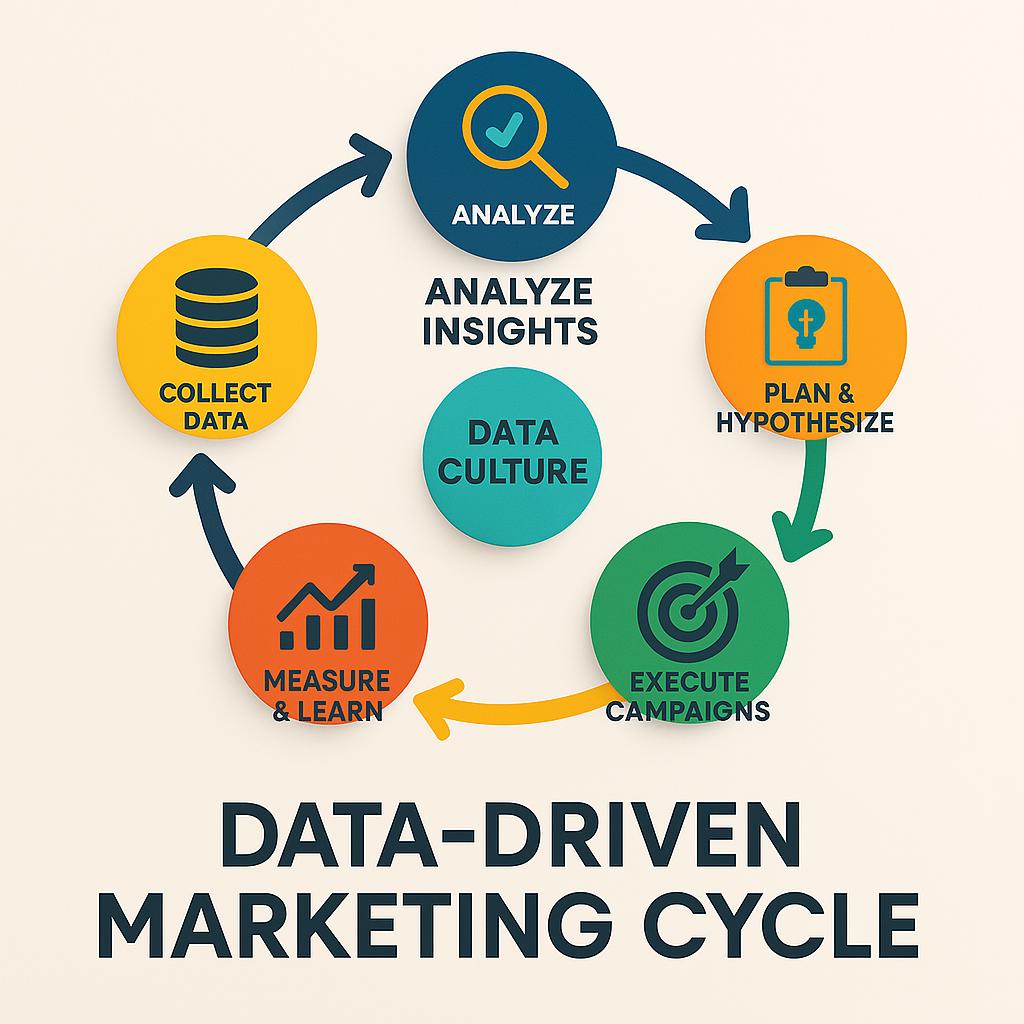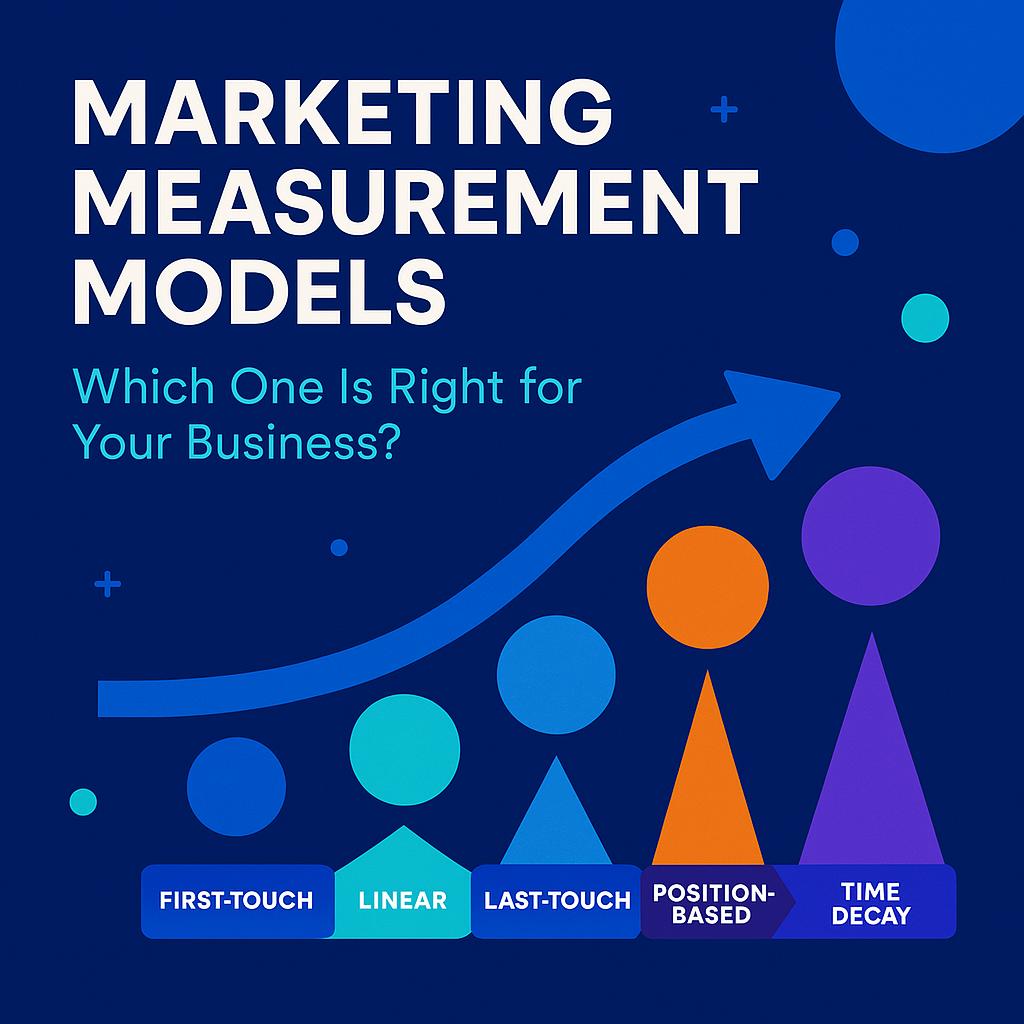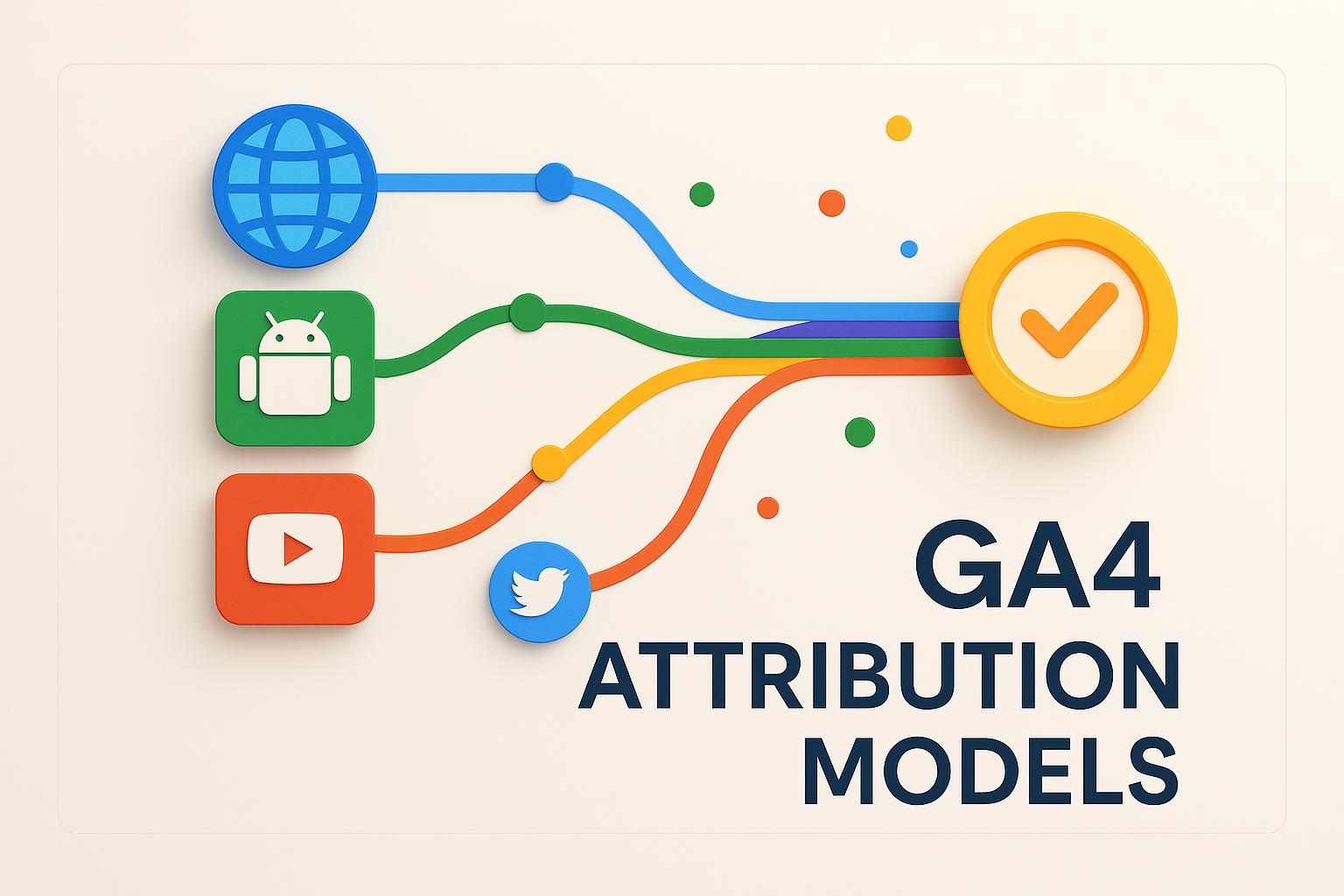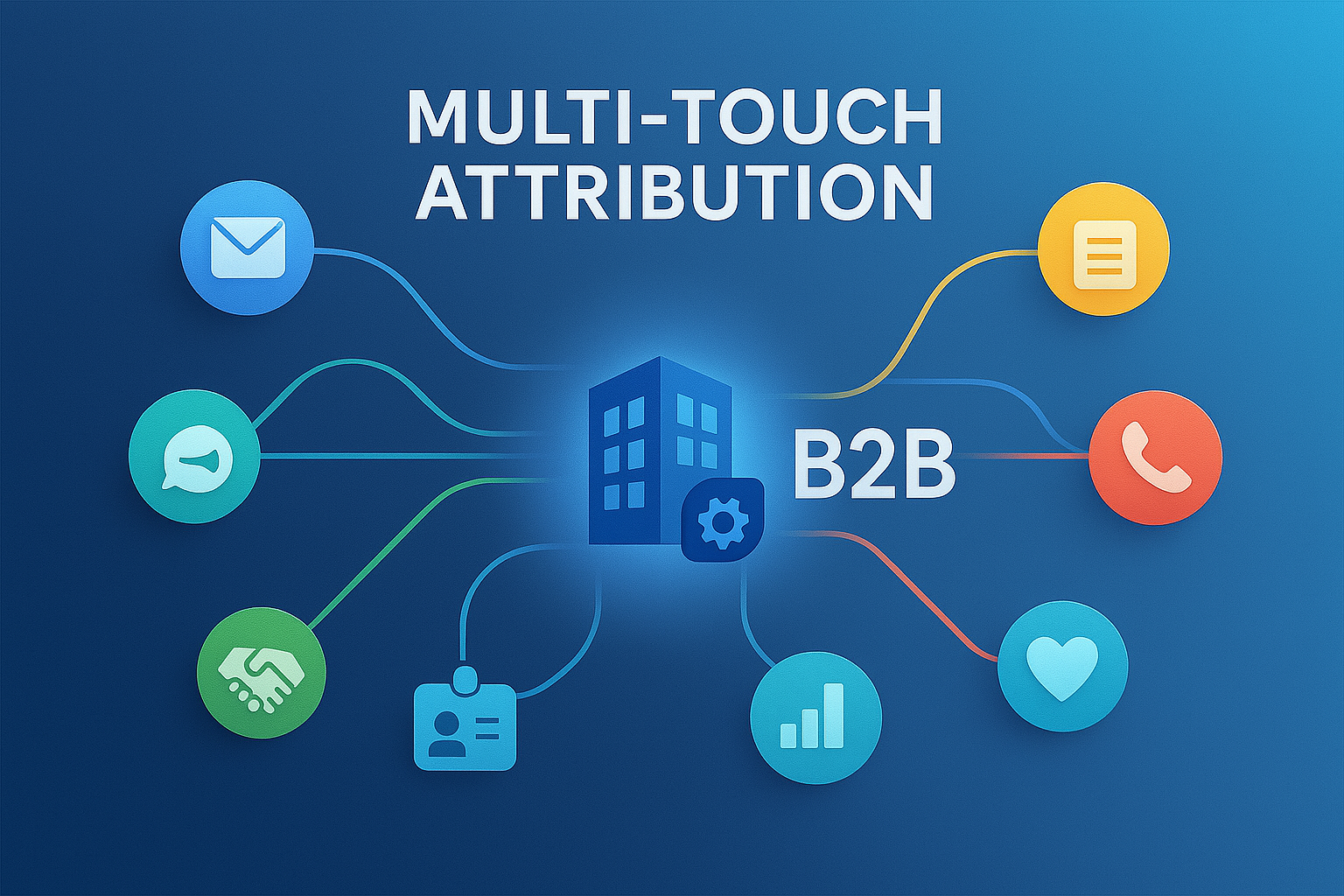The era of relying solely on creative intuition in marketing is long gone. Today's most successful marketing teams combine creative thinking with robust data analysis to drive decision-making and optimize performance. Building a truly data-driven marketing team requires careful consideration of roles, skills, tools, and processes—but the rewards are well worth the effort.
What Makes a Marketing Team Truly Data-Driven?
A data-driven marketing team isn't simply one that looks at numbers occasionally. It's a team that has embedded data into every aspect of its operations, from strategy development to tactical execution and performance evaluation.

The best marketing teams don't use data to validate what they already believe. They use data to discover what they don't yet know.
Essential Roles in a Data-Driven Marketing Team
Building an effective data-driven marketing team requires a mix of specialized roles that work together to turn data into actionable insights and measurable results.
Marketing Analytics Manager
The analytics manager oversees the collection, analysis, and reporting of marketing performance data. They ensure that the team has access to accurate, relevant information to guide decision-making.
Marketing Operations Specialist
The operations specialist focuses on the technology, processes, and workflows that enable effective data collection and utilization throughout the marketing organization.
Performance Marketing Manager
This role focuses specifically on paid channels, using data to optimize campaign performance and allocation of marketing budget across different platforms.
Content Strategist with Analytics Focus
The content strategist combines creative storytelling skills with data analysis to develop content that resonates with target audiences and drives measurable results.
Data Scientist (For Larger Teams)
For more sophisticated marketing operations, a dedicated data scientist can develop predictive models, conduct advanced analyses, and unlock deeper insights about customer behavior.
Essential Skills and Competencies
Beyond specific roles, there are certain skills and competencies that every member of a data-driven marketing team should possess or develop.
Technical Skills
Analytical Thinking
Communication Skills
// Example scoring matrix for evaluating marketing analytics candidates
function evaluateCandidate(candidate) {
const scores = {
technicalSkills: rateSkills(candidate.technical, [
'dataAnalysis', 'marketingPlatforms', 'sql', 'statistics'
]),
analyticalThinking: rateSkills(candidate.analytical, [
'criticalEvaluation', 'patternRecognition', 'hypothesisTesting'
]),
communication: rateSkills(candidate.communication, [
'dataVisualization', 'storytelling', 'stakeholderManagement'
])
};
return {
totalScore: calculateWeightedScore(scores),
strengths: identifyTopSkills(scores),
developmentAreas: identifyGaps(scores)
};
}Building Your Marketing Technology Stack
A data-driven marketing team needs the right tools to collect, analyze, and act on customer data. Here's a framework for developing a marketing technology stack that supports data-driven decision making.
Core Analytics Platform
Start with a robust analytics platform like Google Analytics 4, Adobe Analytics, or Mixpanel to track user behavior across your digital properties.
Customer Data Platform (CDP)
Implement a CDP like Segment, Tealium, or mParticle to unify customer data across touchpoints and create comprehensive customer profiles.
Marketing Automation Platform
Choose a platform like HubSpot, Marketo, or Pardot that enables automated, data-driven campaign execution across channels.
Visualization and Reporting Tools
Implement tools like Tableau, Looker, or Power BI for data visualization and dashboard creation that makes insights accessible to all team members.
Attribution and Mix Modeling
Consider specialized tools like Dreamdata, Attributer, or Windsor.ai to understand how different marketing touchpoints contribute to conversions.
Testing and Optimization Tools
Implement tools like Optimizely, VWO, or Google Optimize for A/B testing and experimentation across digital touchpoints.
The right tech stack isn't the most expensive or comprehensive one—it's the one that solves your specific business challenges while being adoptable by your team.
Establishing Data-Driven Processes
Having the right people and technology is important, but establishing effective processes is what truly embeds data-driven thinking into your marketing operations.
Regular Reporting Cadence
Establish a consistent schedule for reviewing key performance indicators and sharing insights across the team. This could include daily performance checks, weekly trend analysis, and monthly strategic reviews.
Hypothesis-Driven Testing Framework
Implement a structured approach to experimentation that includes clear hypothesis formulation, test design, implementation, analysis, and documentation of learnings.
// Example hypothesis template
const testHypothesis = {
observation: 'Our email open rates are below industry benchmark',
hypothesis: 'More personalized subject lines will increase open rates',
testDesign: {
variant_a: 'Generic subject',
variant_b: 'Personalized subject with name',
variant_c: 'Personalized subject with name and company',
sampleSize: 3000, // per variant
duration: '7 days',
successMetric: 'Open rate',
secondaryMetrics: ['Click rate', 'Conversion rate']
},
expectedOutcome: 'Variant C will show at least 15% improvement'
};Campaign Planning and Review
Integrate data analysis into campaign planning by reviewing historical performance, setting data-backed targets, and conducting post-campaign analysis to capture learnings.
Cross-Functional Collaboration
Establish regular touchpoints with other departments such as sales, product, and customer success to share insights and align on data interpretation and business impact.
Skill Development and Training
Create ongoing learning opportunities for team members to enhance their data literacy and analytical skills through workshops, courses, and knowledge sharing sessions.
Overcoming Common Challenges
Building a data-driven marketing team isn't without obstacles. Here are strategies for addressing some of the most common challenges.
Data Quality and Integration Issues
Poor data quality can undermine even the best analytical efforts. Establish data governance practices, regular audits, and clear ownership of data quality across systems.
Balancing Data with Creativity
Data-driven doesn't mean data-only. Create processes that leverage data for targeting and measurement while allowing creative exploration and intuition in content development.
Analysis Paralysis
Too much data can lead to decision paralysis. Establish clear decision frameworks that specify what data is needed for different types of decisions and acceptable confidence levels.
Skills Gaps
Finding talent with both marketing and analytics skills can be challenging. Consider developing internal talent through training, partnering with analytics teams, or bringing in specialized consultants.
Cultural Resistance
Transitioning to data-driven marketing may face resistance from team members comfortable with intuition-based decisions. Foster adoption by celebrating early wins and making data accessible and actionable.
Measuring Success: KPIs for Data-Driven Teams
How do you know if your data-driven marketing team is effective? Beyond standard marketing metrics, consider these indicators of data-driven maturity and success:
Conclusion: The Evolution of Data-Driven Marketing
Building a data-driven marketing team is not a one-time project but an ongoing evolution. As technology advances and customer expectations shift, the most successful teams will continuously refine their approach to data collection, analysis, and application.
The goal isn't perfect data or perfect predictions—it's better decisions that lead to better outcomes for your business and your customers. By assembling the right talent, implementing appropriate technology, and establishing effective processes, you can build a marketing team that leverages data as a competitive advantage while maintaining the creative spark that drives meaningful connections with your audience.
The most powerful marketing teams combine the art of storytelling with the science of data—neither sacrificed for the other, but both enhanced through their integration.



